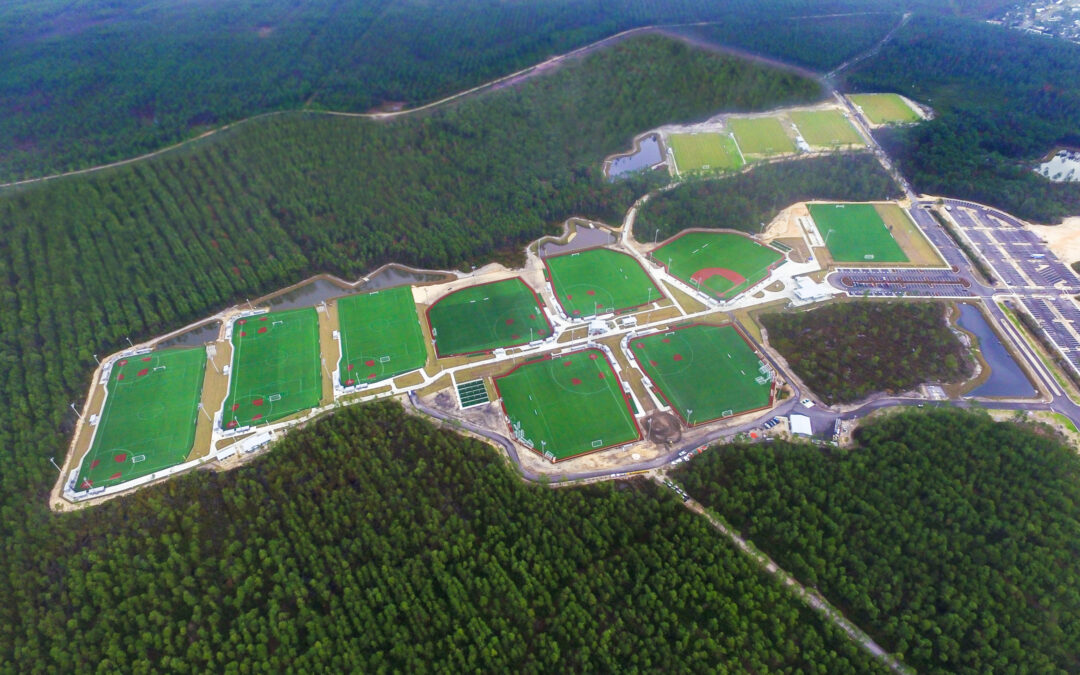Why consider Asset Management/Owners Representation for your sports complex even if you have hired a third party management company.
CREATIVE SOLUTIONS
Alignment:
Because of inherent and irreconcilable differences in goals and objectives, rarely is a third part sports complex manager sufficiently aligned with an owner. This lack of alignment is especially notable in circumstances where the growth and protection of the management company’s own brand trumps the individual needs of a given asset. Perspective: Sports Complex operators are, for the most part, focused on the “sports complex business.” A good asset manager is focused on the “business of sports.” The perspective of balancing operating modalities with owner’s financial objectives will rarely occur without the active involvement of a knowledgeable owner or asset manager.
The Law/Lie of Averages:
Financial statements out of experiential context can be very misleading and provide a false sense of comfort. Let’s say an owner receives a financial statement showing, say, a 33 percent cost-of-goods-sold for food. Is that good, just OK, or really bad? What would one do to measure that performance? Look at the performance of other comparable facilities? Often management companies will compare to other venues in their own portfolio. But just because your facility is inline with other facilities within that portfolio, does it mean it’s performing optimally as compared to industry expectations? Because there are dozens of variables that impact the numbers, these are, at best, marginally relevant benchmarks and, at worst, totally misleading. Some of the largest and most experienced operating companies do not properly understand (or properly execute on) best-practices evaluation tools in key operating areas. In the food cost example above, there are a multitude of things that can be done to better understand results and many dozens of things that can be done to improve performance. This happens also to be the case in payroll & benefits, which is the largest operating expense of any property.
Leveling the Playing Field:
When there is an imbalance in the knowledge and experience of two parties, the party with less knowledge and experience is at a distinct disadvantage. In sports complexes, this manifests in suboptimal budgeting, misreading performance metrics, and accepting poor excuses for failed performance. As bad as it is to have an operator with unbalanced power/influence in the relationship, it can be as bad for an unknowledgeable owner or under-qualified asset manager to force their will onto the sports complexes operation, as it may actually compound the problem. An experienced asset manager like Vieste levels the playing field; not only do we have comparable knowledge at the asset level, but we also have the benefit of a broader perspective. That is, we see what other complexes and operators are doing in both our asset management and our advisory business – and we can bring a “best practices” approach to bear in operator interactions.
Informed Second Opinion on Key Matters:
By their nature, sports complex operating agreements are living documents. Besides the major annual approvals of the business plan, there are multiple events throughout the year that require owners’ input and approval, including the all-important hiring of senior leadership. On what basis will the owner make such decisions if not through the involvement of a knowledgeable advocate? For instance, Vieste can assess key personnel preferred by operators based on our actual hands on experience – and through our deep industry relationships, we can get honest references. Moreover, because we are in a position of influence in terms of the future growth of operators, we find that our asset managed hotels are more likely to get “first string” players to begin with.
Challenge:
Most individuals and organizations perform better when they have active oversight and are encouraged/pressured to improve. Naturally, that challenge can come from anyone, regardless of expertise. But as mentioned above, pressure for pressure’s sake is often detrimental. Where an owner has enforcement rights, an uninformed directive can have unintended consequences. Where an owner’s rights are limited (as is the case in most third party management contracts), a heavy-handed approach by owners can create conflict and strain in the owner/operator relationship. We have found that operators almost always respond favorably to suggestions/demands from those who have been in their shoes, especially when they are factually substantiated, thoughtful, and intended to improve performance – not just criticize it.
Individualization Versus One-Size-Fits All:
Management companies (particularly the larger ones) value efficiency over creativity. While this may be easier and more profitable for the manager, it is not necessarily the best thing for an individual sports complex. Even the best global systems and standards will not optimize the performance uniformly for all sports complexes. Every complex is unique in some respects (especially from a market/marketing perspective) and a knowledgeable asset manager is the best way to insure that the management company thinks and acts creatively versus simply taking pages from the operators generic play book.
